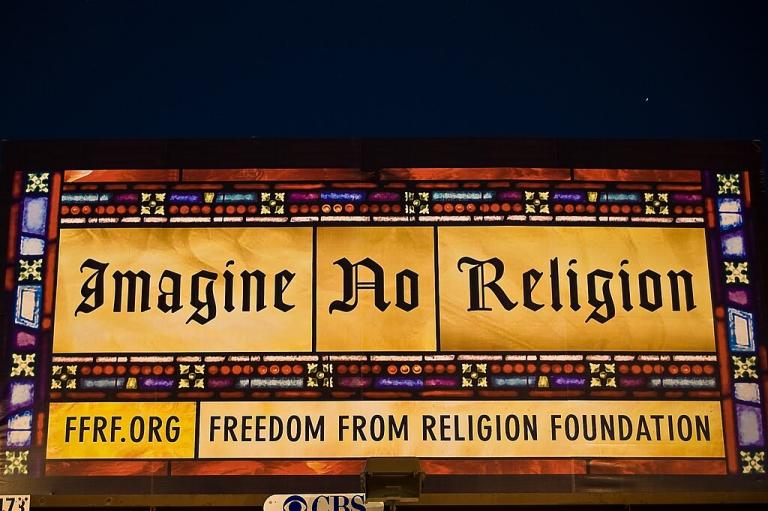One paradox of America’s religious landscape is that the decline in religion is not being accompanied by a rise in atheism. That is to say, most people without a religion still believe in God. Conversely, many people who believe in God say they have no religion. How can that be?
Sociologists Christopher P. Scheitle and Katie Corcoran take up that puzzle and propose some answers in their article Religious ‘Nones’ Have Soared In Recent Years, But Why Not The Number Of Atheists?
They observe that the percentage of Americans who say that their religion is “None” has skyrocketed, from only 5% in the 1990s to around 30% today. And yet, only 17% of those who say they have no religion are atheists. The percentage of Americans who say they are atheists is just 4%, which comes to only 17% of the “Nones.”
Regardless of how strong their teenage belief was, for instance, Black, Asian and Hispanic Americans were less likely to later identify as an atheist than white individuals. All else being equal, the odds of individuals in these groups adopting an atheistic worldview was about 50% to 75% less than the odds for white individuals.
In part, this could be a product of groups that already face stigma related to their race or ethnicity being less able or willing to take on the additional social costs of being an atheist.
I question that. There is little social cost in responding to an anonymous survey. And I just don’t think most people think in those terms. (“This surveyor may not like me if I say I am an atheist. Instead, I’ll just say I don’t believe in God.”)
I suspect that follow-up questions would show that the person has a reason for distinguishing his or her own non-theism from atheism, as such. For example, “I don’t believe in a supernatural person named ‘God,’ as in the Bible, but I believe in a cosmic consciousness that pervades all things, so I’m not really an atheist.”
It is also true that religion is not necessarily theistic. As the researchers admit, citing a study on atheism within the religions of Buddhism, Jainism, and Hinduism, “Not all religious traditions emphasize belief in a deity.” While rejecting institutional religion, most Nones are constructing their own private brand of religion or spirituality–a church consisting of only one member–so that will necessarily take as many forms as there are individual Nones. Some of these, like some of the institutional religions they are trying to distance themselves from, will do without a deity. But the final product will nevertheless be far from the materialistic reductionism of atheism.
More telling, I think, is the researchers’ finding about the connection of wealth to atheism:
We find that adults with more income – regardless of how strong their belief was at 16 – are more likely to adopt the stance that they do not believe in God. Each increase from one income level to another on an 11-point scale increases the odds of adopting an atheistic worldview by about 5%.
This could be a function of income providing a buffer against any stigma associated with holding an atheistic worldview. Having a higher income, for instance, may give an individual the resources needed to avoid social circles and situations where being an atheist might be treated negatively.
However, there may be another explanation. Some social scientists have suggested that both wealth and faith can provide existential security – the confidence that you are not going to face tragedy at any moment – and therefore a higher income reduces the need to believe in supernatural forces in the first place.














